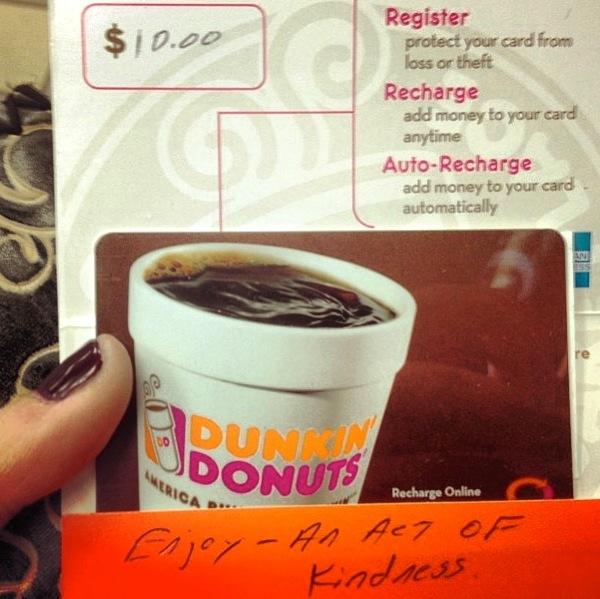In his junior and senior health classes, Coach Lynott gave an assignment to students to promote kindness in the community. Each student had to write about their definition of kindness, and then summarize a random act of kindness they performed without expecting anything in return. While some students dreaded completing the assignment, a few students went above and beyond.
A certain student stood out to Lynott. She described kindness as “going out of your way, your daily routine, to do something that will benefit someone else and for no personal gain, not even a thank you.” At first, she took a simple route with the assignment, giving a homeless man change and not expecting a thank you. However, she felt that this was not enough. She wanted to do more with the assignment. She believed that helping the poor was merely a civil duty, so she wanted her act to be more meaningful. One morning, she came to school early and taped envelopes containing a dollar in random lockers and bathroom stalls, with the attached note “For you, have a nice day.” She also brought an envelope to the office, asking the secretary to give it to someone who came in late who looked like they were having a rough start to the day. She hoped that this would create a domino effect, that the people who received the money would be inspired by the kindness that they received to go on and do something for someone else.
While the assignment was helpful in inspiring kindness, one student was surprised that it took a teacher to force them to do something kind. She thought it ridiculous that students had to be required to be nice, rather than just doing it day to day. Her point is very valid. I was surprised myself. Talking to some other students I realized that they believed the assignment was a hassle. They didn’t want to spend the time thinking of something to do.
In my opinion, this is not the attitude you should have approaching an assignment like this. You should use the opportunity to really try to do something meaningful. And even without the assignment, I think people should always just try to be kind and do nice things. You don’t need to do something as elaborate as the aforementioned student, but little things are always appreciated. Wait to hold the door for someone, offer to help them with their homework, lend a pencil without having to be asked first. If everyone did this on a daily basis, without having to be assigned to do it, everyone might just be a little happier.
